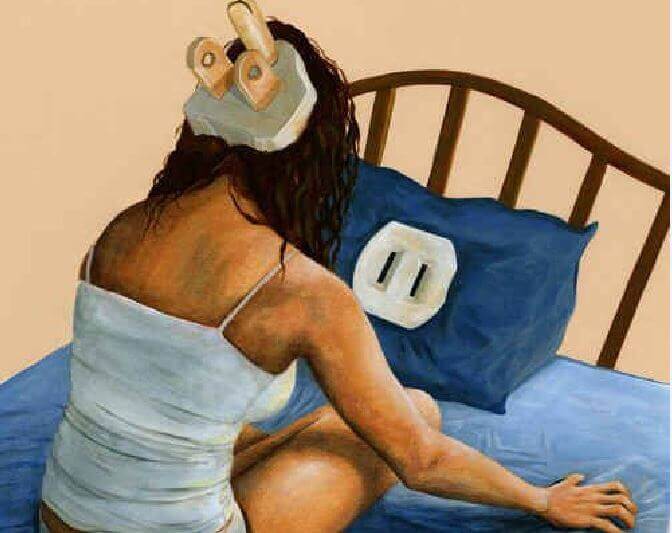The importance of restful sleep is well known to everyone, and we know that insomnia is a threat to well-being, this involves various brain mechanisms, so it is important to maintain good sleep hygiene.
After a sleepless night, can we suffer several negative consequences during the day, such as fatigue, drowsiness, headaches, attention deficit?Thus, it is obvious that its function goes beyond allowing us a simple physical rest. On the other hand, due to the effects of lack of sleep, it is remarkable its complex function and the need that humans have to sleep.
- But what happens in our sleep?How can I improve its quality? All these questions and a few more will be answered below.
As we sleep there are certain neurological processes that are fundamental to the mechanisms of learning and memory consolidation, let us remember that sleep is a basic human need and that its deprivation has serious consequences, both physical and mental.
Once sleep begins, we can identify a cycle of 70 to 100 minutes that repeats 4 to 5 times per night. The cycle begins when we fall asleep. At this point non-paradoxical sleep begins, first in the initial phase, then in the deep phase. When we sleep for about 90 minutes, the REM phase begins, that’s where dreams happen.
As hours go by, the REM phase is longer, so sleep is lighter in the early hours of the night. The duration of the phases also changes with age. For example, newborns sleep for 20 hours, and largely in the REM phase, suggesting affectation. REM phase in neurocognitive development.
The need for sleep varies depending on the daytime activity of each person, so people who do not accumulate physical fatigue do not need a ”physical repair” that is performed during sleep, so sedentary people have many difficulty sleeping because the body does not recognize the need to rest.
There is an endogenous sleep and wakefulness cycle of 25 hours that synchronised with the 24-hour cycle of light and darkness, that’s the factor that will influence. This timing is misused in some people with a circadian cycle disorder, involving melatonin.
The synthesis of this neuronal hormone varies throughout the 24-hour cycle and responds to changes in ambient lighting. Normally, melatonin secretion by the pineal gland is inhibited by light and stimulated by darkness; its secretion peaks in the middle of the night and gradually decreases.
One in three people will suffer from a sleep disorder throughout their life cycle, with serious consequences that can affect academic or professional performance, as it leads to cognitive changes; as well as emotional changes that will affect the person’s interpersonal relationships or mood.
There are some basic guidelines for solving or avoiding these disorders, these guidelines are part of sleep hygiene, which can ensure that you will be restorative.
Currently, the function of sleep is not entirely clear, although there are several hypotheses, one of the theories is energy conservation, our body temperature drops during sleep and reduces oxygen consumption, let’s say it is a kind of energy saving keep it after the tasks done during the day.
Another possibility is to have a restorative function. Sleep aims to rehabilitate our body after the effort made, in this way, it would fight against the tiredness that the state of wakefulness produces, physiologically restoring our body.
There are also studies on memory consolidation. Sleeping after training in any cognitive area, such as studying for an exam or playing an instrument, dramatically increases performance. The presence of excitation-like activity patterns in regions of the brain suggests that these activity patterns are transmitted to our brain, promoting learning.

